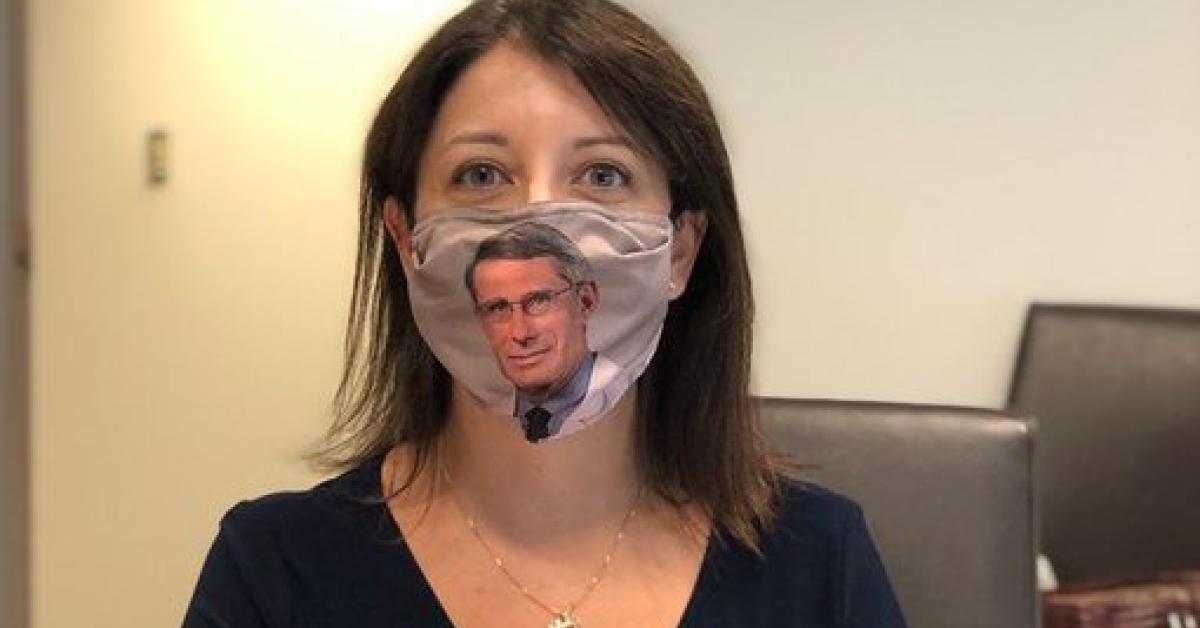We support our Publishers and Content Creators. You can view this story on their website by CLICKING HERE.

Federal public health agencies are known for black-and-white public service announcements that portray their favorite COVID-19 treatments as universally beneficial without providing supporting data, particularly the effectiveness of each new vaccine formulation.
Food and Drug Administration Commissioner-nominee Marty Makary once accused the current officeholder, Robert Califf, of wildly exaggerating data in claiming that since-rescinded bivalent vaccines, which targeted two COVID strains, showed a “significant reduction in hospitalization and death in all populations examined, which is clinically meaningful.”
The Centers for Disease Control and Prevention, which similarly claims COVID vaccines are safer than infections for all populations, has now been caught empty-handed when asked for data to support its claim, on the same “myths and facts” page, that “nearly all the ingredients” in the therapeutics are found “in many foods – fats, sugars, and salts.”
The Informed Consent Action Network and Mississippi Medical Professionals for Informed Consent filed a Freedom of Information Act request for all documents including “studies, journal articles, manufacturer data, etc.” that are “sufficient to show the foods that contain the same ingredients as those found in the COVID19 vaccines” to verify the CDC’s claim.
They also asked for data on foods that contain the ingredients listed in the vaccine inserts, in another five FOIA requests: “recombinant spike protein from the SARS-CoV-2 virus … nucleoside-modified messenger RNA …extracts from the soapbark tree” and exotic-sounding chemicals such as “methyl-α-D-mannopyranoside,” and evidence that the body responds the same to an ingredient whether eaten or injected.
The CDC’s response to the broadest request? Its National Center for Immunization and Respiratory Diseases does not have “any documents pertaining to your request.”
The FOIA officer told the entities to ask the FDA for the data because “the subject matter expert notes that ingredients in specific vaccines fall under the responsibility of the FDA,” and also told them how to appeal the agency’s response up the FOIA command chain.
“Typically, if one agency points us to another, ICAN will have us submit the same requests to that other agency although here, ICAN was questioning the evidence justifying a statement on CDC’s own website so it’s unclear why CDC would have no records yet FDA would have them,” ICAN’s lawyer Elizabeth Brehm told Just the News in an email.
She shared the agency’s responses to all six FOIAs, which gave the same no-records response but also cited various CDC and FDA pages, including kinds of vaccine ingredients and examples, such as the stabilizer gelatin and “residual inactivating ingredient” formaldehyde, and a long explanation of why certain ingredients are in vaccines.
“CDC’s approach to truth and data is a joke,” Brehm’s colleague Aaron Siri, who leads the effort, wrote on X. ICAN alleged the agency’s shrugging response shows it’s violating the Information Quality Act by not being able to “substantiate the quality of the information it has disseminated.”
The CDC didn’t respond to Just the News queries.
The agency’s inability to back up its public messaging comes as the feds continue hiding safety data, healthcare workers worldwide express hesitancy toward COVID vaccines and some state public health agencies ditch one-size-fits-all recommendations.
Another FOIA filer beat the FDA this month, with a federal judge ordering the agency to produce its emergency use authorization file on the Pfizer COVID vaccine by June 30, 2025.
The FDA argued the EUA file isn’t covered by Public Health and Medical Professionals for Transparency’s FOIA request for the “biological product file” in the formal application for licensing, but U.S. District Judge Mark Pittman quoted its own press release on the vaccine’s formal approval, which said it used and builds on the EUA’s data.
The Biden administration pulled out all the stops to delay the release of the FDA’s COVID vaccine safety data that are kept apart from the public Vaccine Adverse Events Reporting System, in response to Just the News litigation.
The docket shows the feds secured a stay of the proceedings before Donald Trump’s election victory. The case is scheduled to resume five months into the second Trump administration.
ICAN recently launched a dashboard for searching the “free-text” entries from the CDC’s v-safe surveys for the earliest COVID vaccine recipients, which the feds unsuccessfully fought to withhold for a year after turning over the “checkbox” answers from v-safe.
It took months longer to get the complete data, “with additional fields that allow us to see the date of injection, the number of days after injection each reaction was reported, and the MedDRA codes assigned for each reported reaction (a standardized coding system to classify medical events) along with every free text entry,” ICAN said.
A relatively young National Institutes of Health branch director recently admitted in undercover video that he wouldn’t get an updated vaccine because it would “increase my risk for the known myocarditis,” questioned whether COVID vaccination “does anything” and suspected vaccines were rushed to full approval in 2021 to justify boosters.
A newly published survey of 7,000 healthcare workers in Australia, Brazil, Canada, China, France, Germany, India, Italy, New Zealand, Spain, the United States and the United Kingdom, found a fifth had “strong or moderate” COVID vaccine hesitancy.
The most likely to be hesitant were midwives, followed by nutritionists, pharmacists, nursing professionals and public health professionals, according to the study in the journal Public Health. Large majorities believe “side effects were minimised by pharmaceutical companies” (67%) and public authorities (64%).
Louisiana joined Florida by dropping what its Department of Health calls “one-size-fits-all paternalistic guidance” and adopting a “more informative approach” that promotes individuals making decisions “in consultation with their doctor.”
While Surgeon General Ralph Abraham, who partly oversees the agency, “has expressed personal concerns about the efficacy and safety of the COVID-19 vaccine,” the department believes immunization, mask-wearing and social distancing “are an individual’s personal choice,” the statement reads.
It is shifting to public health priorities that were “often deprioritized during the pandemic,” including overdoses, maternal mortality and chronic disease.
NPR said four LDH employees confirmed that officials told “high-level managers” at a November meeting that they weren’t allowed to promote COVID, flu or monkeypox vaccines in any way, from press releases and interviews to vaccination offerings at LDH clinics.

 Conservative
Conservative  Search
Search Trending
Trending Current News
Current News 




